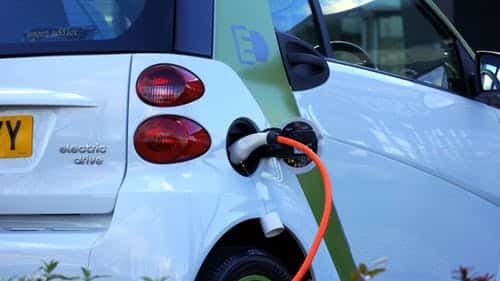Biden Administration Announces Nearly $45 Million to Reduce Electric Vehicle Battery Recycling Costs

The U.S. Energy Department has announced $44.8 million in capital from the 2021 Infrastructure Investment and Jobs Act for eight projects that will reduce expenditures of recycling electric vehicle batteries and electric vehicle battery parts, with the overall long-term objective of reducing vehicle costs.
Since the inception of the Biden Administration over four million electric vehicles (EV) have been purchased in the U.S. Moreover, the demand for EV’s and stationary storage is expected to elevate the scope of the lithium battery market significantly over the next decade. Given the expected growth, the U.S. investment towards a robust domestic supply chain for large-capacity batteries becomes significantly more important.
The projects handpicked by the U.S. Energy Department’s Vehicle Technologies Office will develop research, expansion and demonstration of recycling and second life applications for batteries previously utilized to power EVs. The most recent announcement is on top of the $92 million declared for previous projects to enhance EV battery recycling and increase equitable deployment.
The eight projects chosen for this phase of financing are the second stage of the overall $200 million given for electric drive vehicle battery recycling and second life applications and a share of the $7 billion in total financing provided by the 2021 Infrastructure Investment and Jobs Act to fund battery supply chains. These projects will lower costs related with dismantling, transporting and preprocessing end-of-life electric drive vehicle batteries for recycling, and the recycling of polymer and plastic electric drive battery accessory parts. During September 2024, the department announced an intention to finance the third stage with up to $70 million for projects that will enhance the economics of electric drive vehicle battery recovery and re-utilization.
The eight projects will enhance the economics of dismantling, transporting and preprocessing of electric drive vehicle batteries. The department has previously made funding available to increase consumer participation in electronics battery recycling and improve its economics. The investment aims to fund projects focused on recycling used electric vehicles batteries in order to reduce demand for new materials and allow domestic industries to produce at lower costs.
EnerKnol Pulses like this one are powered by the EnerKnol Platform—the first comprehensive database for real-time energy policy tracking. Sign up for a free trial below for access to key regulatory data and deep industry insights across the energy spectrum.
ACCESS FREE TRIAL